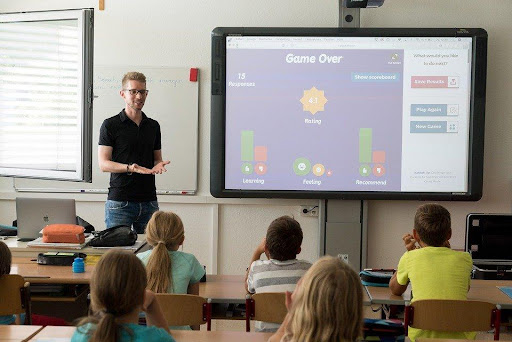The Importance of Early Childhood Education
Early Childhood Education Advantages
Early childhood education plays a fundamental role in laying the foundation for a child's future success. During the first few years of life, a child's brain undergoes significant development, and this period is crucial for the acquisition of various skills and knowledge. Here are some key advantages of early childhood education:
- Cognitive and Academic Development: Early childhood education enhances cognitive abilities, such as problem-solving, critical thinking, and decision-making. It provides a stimulating environment that encourages curiosity and exploration, leading to better academic performance in later years.
- Social and Emotional Development: Through early childhood education, children learn essential social and emotional skills, such as sharing, taking turns, and expressing their feelings. It promotes empathy, self-confidence, and healthy relationships with peers and adults.
- Language and Communication Skills: Exposing children to early childhood education programs promotes language development and improves communication skills. It helps children build vocabulary, express thoughts, and articulate ideas effectively.
- Physical Development: Early childhood education includes activities that encourage physical development, such as fine and gross motor skills. It promotes coordination, balance, and overall physical well-being.
- Preparation for Formal Education: Early childhood education prepares children for the transition to formal schooling. It introduces them to basic concepts, promotes a love for learning, and helps develop a positive attitude towards education.
Early Childhood Education Best Practices
For early childhood education to be effective, it must follow certain best practices. Educators and caregivers must create a nurturing and stimulating environment that supports children's development. Here are some best practices in early childhood education:
- Play-Based Learning: Incorporating play into lesson plans allows children to learn through exploration and hands-on experiences. Play stimulates imagination, creativity, and problem-solving skills.
- Individualized Instruction: Recognizing that each child is unique, early childhood education should provide individualized instruction tailored to the needs and interests of each child.
- Collaborative Learning: Encouraging collaboration among children promotes social skills, teamwork, and respect for others' ideas and perspectives.
- Parental Involvement: Involving parents in their child's early education fosters a strong parent-teacher partnership and ensures continuous support for the child's development.
- Hands-on and Experiential Learning: Engaging children in hands-on activities and real-life experiences deepens their understanding of concepts and encourages active participation in the learning process.
- Qualified and Trained Educators: Early childhood educators should possess the necessary qualifications, knowledge, and skills to provide quality education and create a nurturing environment for children.
Early Childhood Education Programs
There are various early childhood education programs available that cater to the diverse needs of children. These programs focus on holistic development by encompassing various aspects of a child's growth. Some popular early childhood education programs include:
- Montessori Method: The Montessori method follows a child-centered approach and emphasizes hands-on learning and individualized instruction.
- Reggio Emilia Approach: The Reggio Emilia approach encourages child-led exploration, creativity, and the use of expressive arts.
- HighScope: The HighScope approach promotes active learning, problem-solving, and decision-making through hands-on activities and a carefully designed curriculum.
- Head Start: Head Start is a comprehensive early childhood education program that targets low-income families and provides support in various areas, including education, health, and nutrition.
- Bank Street: The Bank Street approach focuses on child development in the context of their social environment. It emphasizes experiential learning and the importance of play.
Early Childhood Education Impact
The impact of early childhood education extends far beyond the early years. Research consistently shows a positive correlation between early childhood education and various long-term outcomes. Here are some key impacts of early childhood education:
- Academic Achievement: Children who participate in early childhood education programs are more likely to excel academically throughout their educational journey.
- Social and Emotional Well-being: Early childhood education helps develop important social and emotional skills, leading to improved mental health and overall well-being.
- Reduced Achievement Gap: Access to quality early childhood education helps reduce the achievement gap between disadvantaged children and their more privileged peers.
- Higher Rates of Graduation: Research suggests that children who receive a strong foundation through early childhood education are more likely to graduate from high school and pursue higher education.
- Positive Societal Impact: Early childhood education contributes to creating a more equitable and prosperous society by nurturing capable and responsible citizens.
- Economic Benefits: Investing in early childhood education yields substantial economic benefits by reducing the need for remedial education, improving workforce readiness, and lowering societal costs associated with crime and welfare dependency.
Early childhood education plays a pivotal role in shaping a child's future. By providing a strong educational foundation and fostering holistic development, it sets the stage for a lifetime of learning and success. It is essential for policymakers, educators, and parents to prioritize early childhood education to ensure the best possible outcomes for every child.




